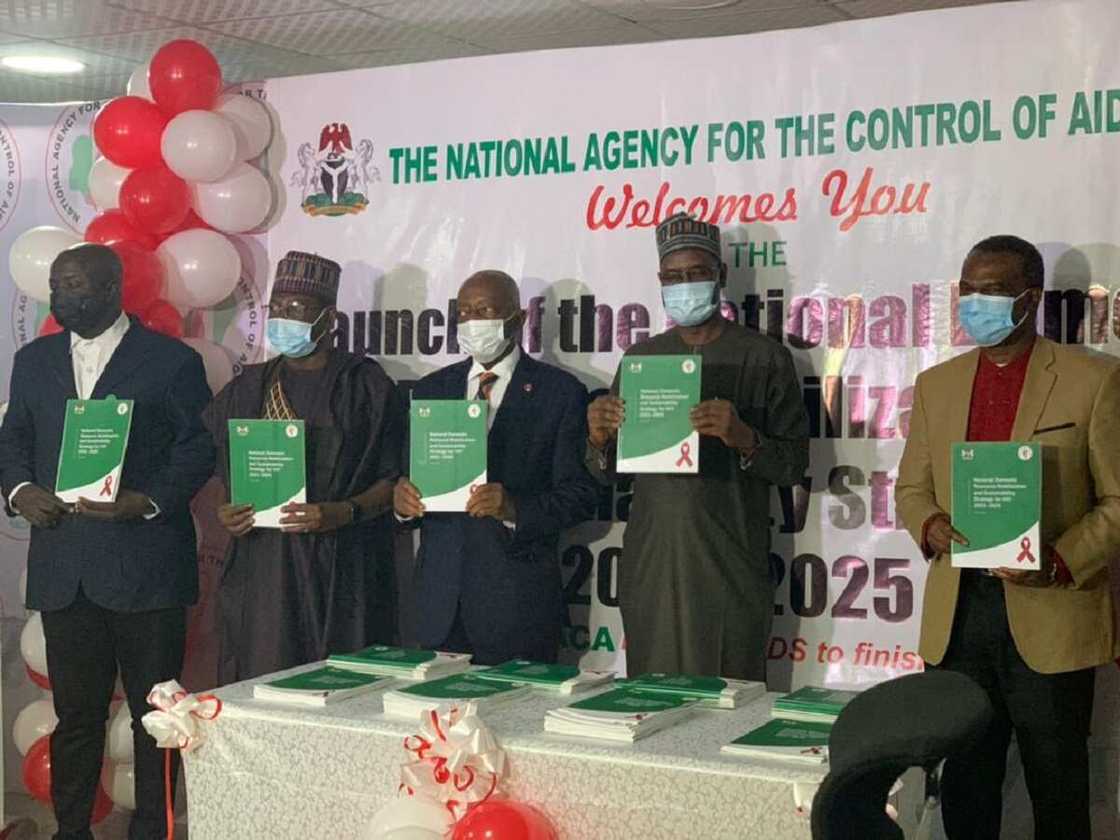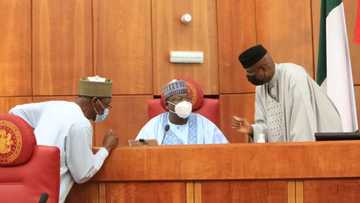HIV/AIDS: Nigeria Moves To End Over Dependence on International Funding
- Nigeria’s agency in charge of the control of HIV/AIDS is set to roll out a strategy to improve local funding
- NACA said the strategy would map out plans for which funding of the HIV programs and activities can be sustained locally
- According to the agency, Nigeria only contributes 18 per cent of $6.2 billion spent on HIV within 13 years
PAY ATTENTION: Join Legit.ng Telegram channel! Never miss important updates!
The National Agency for the Control of AIDS (NACA) on Wednesday, June 23, announced the launch of the National Domestic Resource Mobilisation and Sustainability Strategy.
The director-general of NACA, Gambo Aliyu, said the objective of launching the new strategy is to help tackle Nigeria’s over-dependence on international funding needed for the fight against HIV and AIDS.
It would also reflect the need to expand its resource base and increase domestic resources to diversify sources of funding.

Source: Facebook
Aliyu said the newly launched strategy would be rolled from 2021-2025 to make sure that there is an availability of sustainable resources for the implementation of the programmes in order to meet the global 95:95:95 HIV target by 2030.
Aliyu said:
“It is time to mobilise resources domestically and to ensure that sustainability of HIV funding is guaranteed after epidemic control.”
International Funding for HIV/AIDS Prevention and Treatment in Nigeria
According to the NACA DG, between 2005 and 2018, $6.2 billion was spent on the identification of nearly one million people living with HIV in Nigeria.
Aliyu said 80 per cent of the total money spent within the period under review came from international donors.
He said Nigeria only contributed to 18 per cent of the said amount came from the federal and state government while one per cent was from the private sector.
Owning the Process
Reeling out the benefits of local funding for the fight against HIV/AIDS, Aliyu said there is a need for strong structures that would measure accountability within the system.
Also speaking, the chairman house committee on AIDS, Tuberculosis and Malaria, Abubakar Dahiru said there is an urgent need to improve the budget allocated to NACA.

Read also
Buhari inaugurates committee chaired by Osinbajo to lift 100 million Nigerians from poverty
Dahiru said the committee with collaboration with the Senate believes increasing NACA’s budget by 100 per cent would help sustain the momentum in the fight against the disease should donors withdraw their funding.
The lawmaker urged governments at the state level to ensure compliance by paying the measurable quota needed in the fight against HIV/AIDS.
The country director of UNAIDS, Erasmus Morah said it would be great if Nigeria as a country adopts one or two things from South Africa's experience of funding its HIV response by 80 per cent.
Morah said it is necessary for Nigeria to key into the UN shared responsibility and global solidarity module and not overburden international donors.
He said:
“Who is paying for the 1.6 million Nigerians who are on treatment? If the payer should change their mind, what happens to these people who need the drugs for the rest of their lives.”
A Facebook post by NACA said the board chairman of the agency hopes that Nigeria’s trust fund on HIV will become a reality.
Legit.ng had reported that NACA had said that Nigeria accounts for a significant number of children living with HIV and AIDS.
The agency in commemoration of the children’s day celebration on May 27, said the burden faced by Nigerian can be attributed to the inability of pregnant women to utilise the Prevention of Mother to Child Transmission of HIV services.
PAY ATTENTION: Install our latest app for Android, read the best news on Nigeria’s #1 news app
It also urged Nigerians to always encourage relatives, neighbour and community members alike to ensure that every pregnant woman is tested.
In other news, 430,000 people in sub-Saharan Africa are said to have possiblly died of HIV/AIDS within a space of six months.
This was made known by Aliyu, who quoted statistics from the United Nations AIDS Control programme (UNAIDS).
Aliyu said the deaths due to HIV/AIDS may have occurred during the period of COVID-19 lockdown.
Source: Legit.ng



